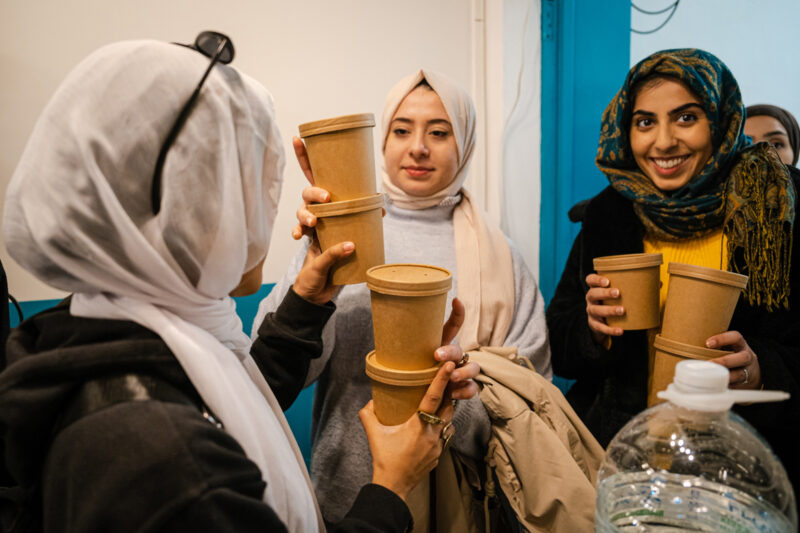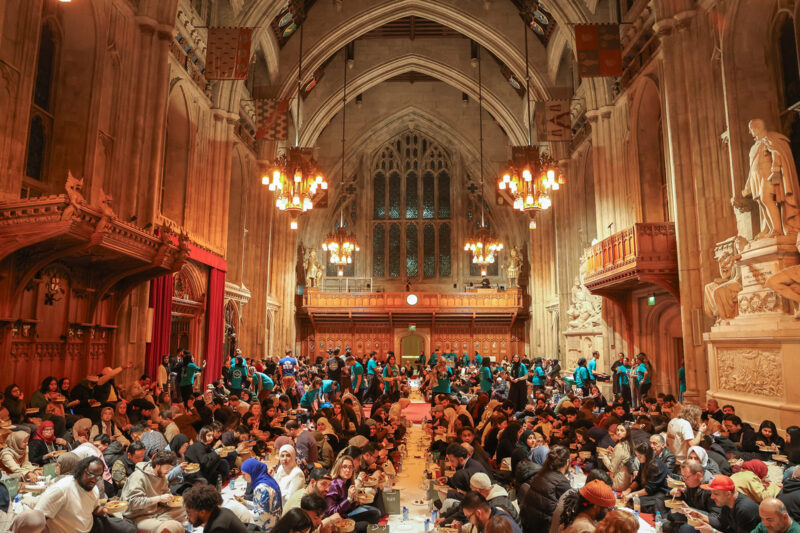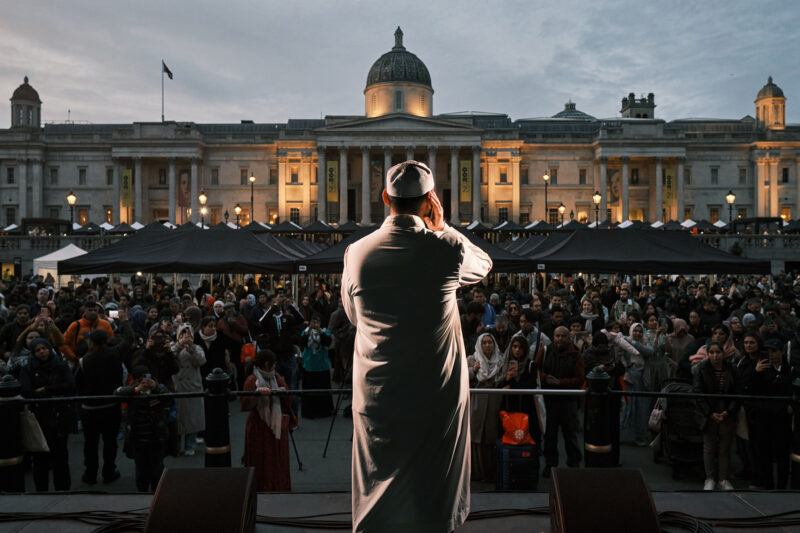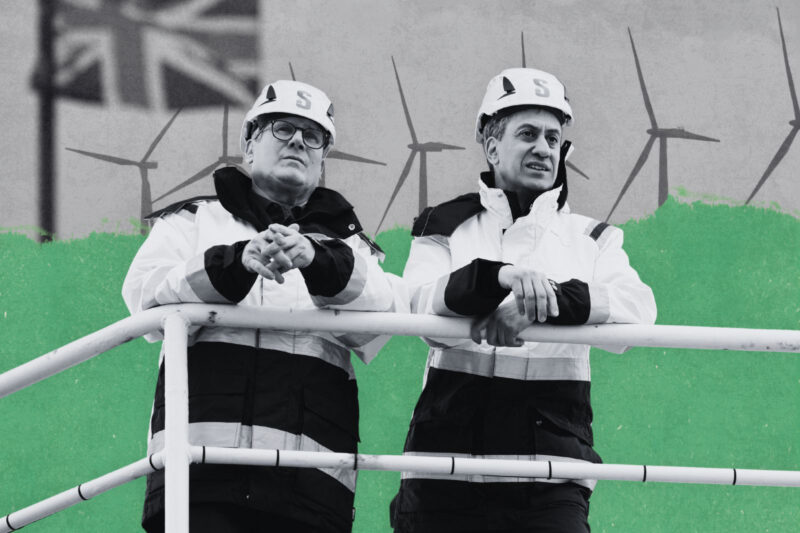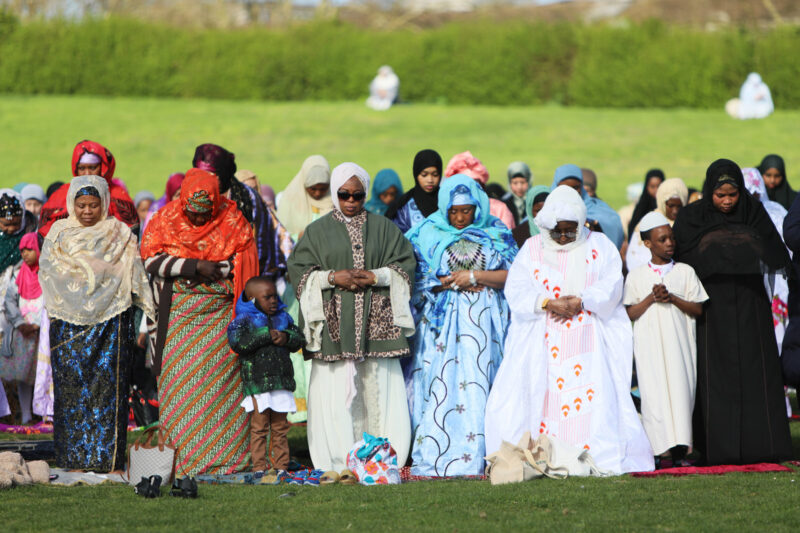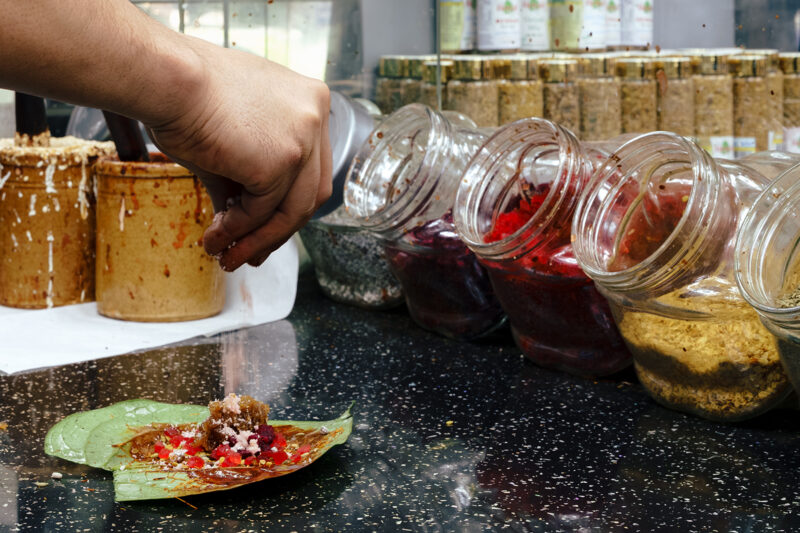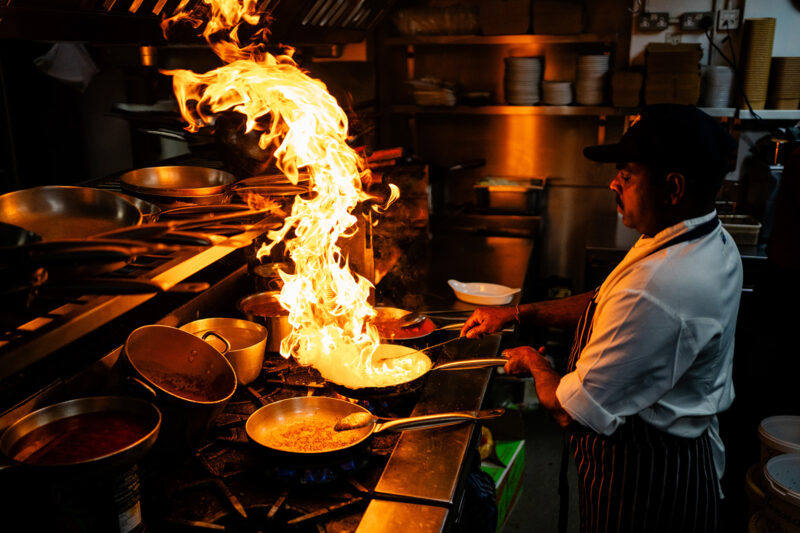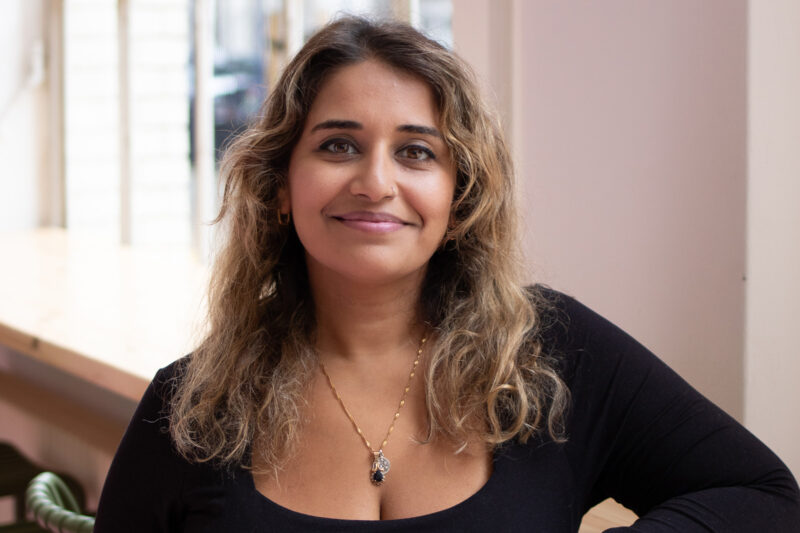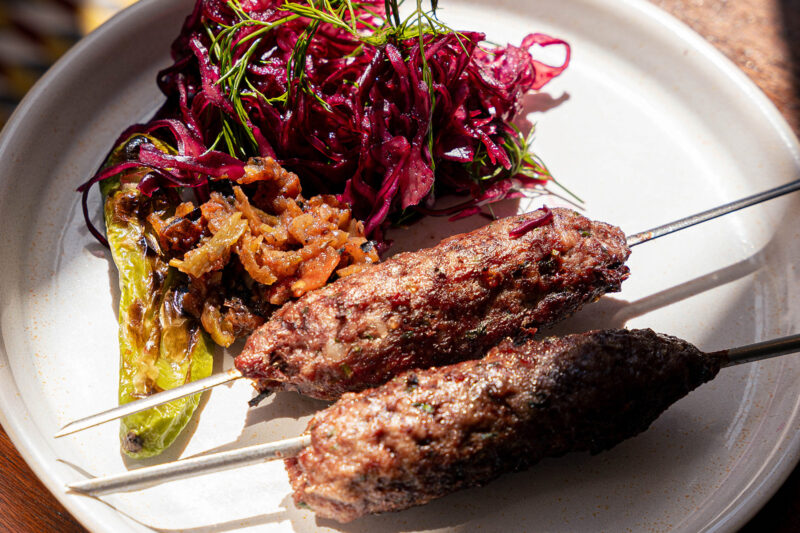Eat consciously and recycle — 2024 is the year of the mindful iftar
UK organisations providing daily meals to tens of thousands are highlighting the importance of sustainability during Ramadan
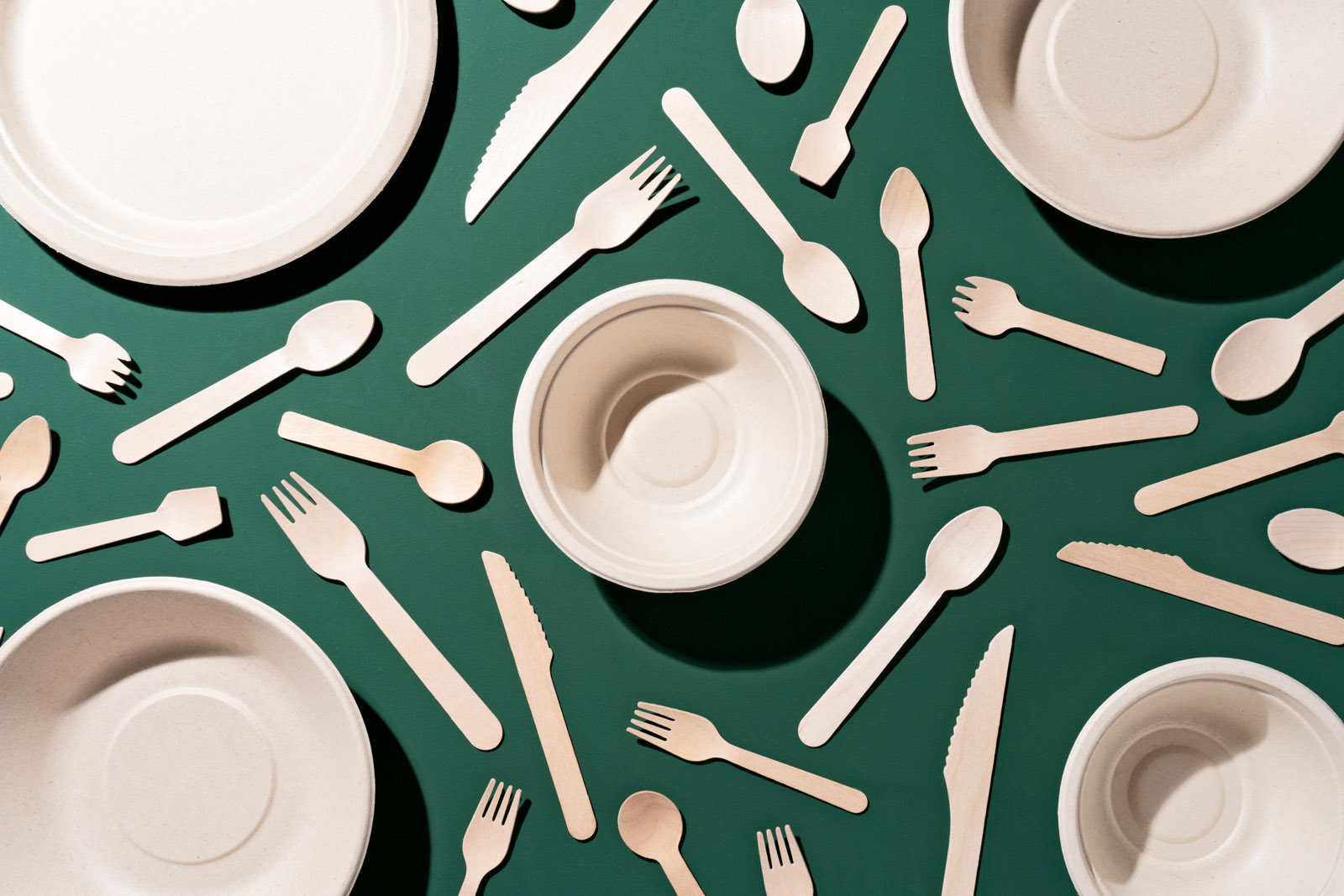
Ahead of the holy month of Ramadan, a number of leading Muslim cultural and religious institutions have unveiled new environmentally friendly initiatives for public iftars to be attended by tens of thousands around the UK.
With public iftars often drawing crowds of up to 1,200 attendees a day, concerns about food and packaging waste are paramount. According to one survey, 75% of respondents said they were concerned about food waste during Ramadan, and 44% said they threw away uneaten or leftover food during previous years’ holy months.
Household iftars can also lead to significant amounts of food wastage. A 2023 survey by the UK charity Love Food, Hate Waste showed that more than half of Muslims believe households overestimated the amount of food required at least once during Ramadan. While an overwhelming majority keeps leftovers, 66% said they ended up throwing them away.
A number of initiatives by faith-based groups are now encouraging Muslims to enjoy a sustainable and plastic-free Ramadan. The Ramadan Tent Project (RTP), which will host 28 iftars around the UK, has announced a major reduction in single-use plastic by more than 90%. This year’s Open Iftar programme, its 11th edition, is poised to be the largest of its kind across England, Scotland, Wales and Northern Ireland with an even 50/50 split between events held in London and those outside the capital.
“We’re very mindful that the month of Ramadan is not only about spiritual sustenance but also about how we connect with our Lord as well as those around us and the environment,” said Omar Salha, founder of the RTP.
‘We have reduced single-use plastic by over 90%. We use only cartoned or canned water. Any cutlery or crockery is recyclable and biodegradable.’
Greener options, of course, inevitably cost more in the short run. Factoring in canned water as opposed to plastic bottles can nearly double the cost, said Salha. “If everyone does their part, it can drive those costs down. And the environment matters more to us than saving a few pounds.”
Salha said RTP’s efforts to curb food wastage have begun with the iftar menu this year. “Everyone sits on the floor. Everyone gets the same meal,” he explained. “We’ll begin with water and dates, followed by one pre-portioned, pre-heated wholesome meal, a mixture of carbs, a meat and veg option and salads.” Leftovers, he said, are taken home by volunteers and guests, or distributed to homeless shelters in the vicinity.
Other organisations adopting similar sustainable measures include the East London Mosque (ELM), which plans to host up to 1,200 people for daily iftars throughout the month of Ramadan.
The ELM first banned single-use plastics last year, after already installing a water refilling station. Reusable water bottles are also available for purchase at the mosque, in keeping with the Muslim Council of Britain’s guide for a greener Ramadan at mosques.
“Many members of the congregation now bring their own water bottles to refill at the mosque,” said Nasim Ahmed, a member of ELM’s media team, adding that initiatives such as installing water refilling stations are “part of our broader effort to fight against climate change”.
The ELM team now uses metal cups and plates along with paper cartons of water during its open iftars. “ It takes part in climate change education with Faith for Our Planet, which is a global interfaith coalition convened by the Muslim World League to fight climate change,” said Ahmed.
Others working at faith-based charities say environmental awareness is often regarded as a faith issue by some Muslims. “Ultimately, it comes down to Islamic responsibility,” says Shazia Arshad, head of communications at Islamic Relief UK, a faith-inspired humanitarian and development agency. “It’s part of our faith to be stewards of the Earth.”
Islamic Relief UK has held sustainable public iftars in the past, but the focus this year is on encouraging Muslims to have an “Eco-Ramadan” by practising sustainability during the holy month and beyond. This includes month-long initiatives to help foster more mindful consumption, including meat-free fortnights and cutting down on electricity and water wastage.
“Ramadan is a moment when everyone’s attention is on food waste and what’s going on in the world — and that’s the climate crisis. Eco-Ramadan is an advocacy campaign of caring and being conscious. It sits around everything else,” said Arshad.
“There is a challenge in terms of how we consume all our resources, not just plastic bottles.
“We need to go so much further so much faster,” she added.
 Newsletter
Newsletter


